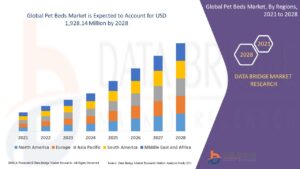Introduction
Dubai’s real estate market is renowned for its versatility and innovation, offering a wide array of options for both renters and buyers. From luxury high-rise apartments in Jumeirah Village Circle to sprawling villas in Arabian Ranches, the city caters to a diverse population with varying needs and aspirations. One of the most significant decisions for residents and investors is whether to rent or own property.
The debate over Renting or Buying Property in Dubai hinges on lifestyle priorities, financial goals, and the rapidly evolving real estate landscape. Both options have distinct advantages and challenges, shaped by factors such as market trends, government policies, and the innovative role of builders in Dubai. This article delves into the key considerations, exploring why some choose the flexibility of renting while others pursue the stability and long-term benefits of ownership.
Renting in Dubai: A Case for Flexibility
Renting is a popular choice for many in Dubai, particularly among expatriates who make up a significant portion of the city’s population. The rental market offers a range of options, from affordable apartments to premium villas, allowing tenants to tailor their living arrangements to their needs.
Advantages of Renting:
- Financial Flexibility:
Renting requires a lower upfront investment compared to buying. Tenants typically pay a security deposit and one year’s rent in advance, making it an attractive option for those who prefer to allocate funds to other priorities, such as travel, education, or business ventures. - Mobility and Adaptability:
Dubai’s vibrant economy often attracts professionals on fixed-term contracts or those frequently relocating within the region. Renting provides the freedom to move without the long-term commitment of home ownership. - Access to Premium Locations:
Renting enables residents to experience high-end areas like Downtown Dubai, Palm Jumeirah, or Jumeirah Beach Residence (JBR) without the financial burden of purchasing a property in these sought-after neighbourhoods.
Challenges of Renting:
- No Equity Growth:
Unlike owning, renting does not build equity or provide long-term financial returns. Rent payments are a recurring expense with no asset accumulation. - Market Volatility:
Rental prices in Dubai can fluctuate based on market demand, economic conditions, and the popularity of specific locations. Tenants may face sudden increases during peak demand periods. - Limited Personalisation:
Tenants often face restrictions on property modifications or renovations, limiting their ability to personalise their living space to suit their tastes or needs.
Owning in Dubai: A Path to Investment
Owning property in Dubai is a significant milestone, offering both emotional satisfaction and financial benefits. Dubai’s tax-free environment, high rental yields, and freehold property options make ownership an attractive proposition for long-term residents and investors.
Advantages of Owning:
- Building Equity and Wealth:
Home ownership allows individuals to build equity over time, with the potential for property appreciation in Dubai’s thriving real estate market. For investors, this provides a tangible asset that contributes to wealth accumulation. - Long-Term Savings:
While the upfront costs of buying are higher, homeowners save on rent in the long run. Mortgage payments contribute to property ownership, ensuring the funds are invested in an appreciating asset rather than lost to recurring rent. - Full Control and Customisation:
Property ownership grants full autonomy over modifications, enabling owners to personalise their homes or upgrade features to enhance comfort and functionality.
Challenges of Owning:
- High Initial Costs:
Purchasing property in Dubai involves significant upfront costs, including a 20-25% down payment, transfer fees, and registration charges. These financial barriers may deter first-time buyers. - Ongoing Maintenance Responsibilities:
Homeowners are responsible for maintenance and repair costs, which can add up over time, particularly for larger properties or luxury villas. - Market Risks:
While Dubai’s real estate market is resilient, property values can fluctuate due to global economic conditions or local oversupply, impacting potential returns on investment.
Renting vs Owning: Key Considerations
Financial Implications:
- Renting is ideal for those seeking short-term financial flexibility, particularly expatriates who may only stay in Dubai temporarily.
- Owning is a better option for individuals with long-term financial goals, offering the opportunity to build wealth through equity and property appreciation.
Lifestyle Priorities:
- Renting appeals to residents who value mobility and prefer to explore different neighbourhoods or adapt to changing circumstances.
- Owning suits those looking for stability, particularly families seeking to settle in established communities with long-term security.
Market Trends:
Builders in Dubai have introduced innovative ownership models, such as rent-to-own schemes and post-handover payment plans, which make it easier for renters to transition into ownership. These initiatives bridge the gap between flexibility and investment, offering more accessible pathways to property ownership.
The Role of Builders in Dubai’s Real Estate Market
Builders in Dubai are instrumental in shaping the renting and owning landscape, leveraging their expertise to cater to diverse market demands.
- Innovative Payment Plans:
Many developers now offer post-handover payment plans, allowing buyers to pay for their properties over several years after taking possession. This reduces the initial financial burden and makes ownership more attainable. - Dual-Purpose Developments:
Developers are increasingly designing properties that appeal to both renters and owners. For example, furnished apartments and serviced units cater to short-term tenants while remaining attractive to long-term buyers. - Sustainability Initiatives:
Builders are incorporating eco-friendly materials and energy-efficient systems into their projects, creating properties that align with global sustainability goals. These features appeal to environmentally conscious buyers and renters alike.
By introducing flexible options and forward-thinking designs, builders in Dubai are redefining the real estate experience for both tenants and homeowners.
Emerging Trends in Dubai’s Real Estate Market
Several emerging trends are influencing the renting vs owning debate in Dubai:
- Hybrid Models:
Developments that offer a mix of rental and ownership options are gaining traction. These hybrid models allow residents to transition seamlessly between renting and owning based on their evolving needs. - Technology-Driven Solutions:
Smart home technology, including app-controlled systems and AI-driven property management, is becoming standard in both rental and owned properties, enhancing convenience and efficiency. - Government Support for Ownership:
Long-term residency visas linked to property ownership and investor-friendly policies are encouraging more residents to consider buying rather than renting.
These trends highlight the adaptability of Dubai’s real estate market in addressing the diverse needs of its population.
Conclusion
The decision between renting vs owning property Dubai is influenced by a variety of factors, including financial goals, lifestyle preferences, and market dynamics. Renting offers unparalleled flexibility and lower upfront costs, while owning provides long-term stability and the potential for wealth creation.
With builders in Dubai continuing to innovate through flexible payment plans, dual-purpose developments, and sustainable designs, residents have more options than ever to find properties that align with their aspirations. Whether prioritising mobility or investment, understanding the nuances of Dubai’s real estate market empowers individuals to make informed decisions that support their unique needs and goals.






